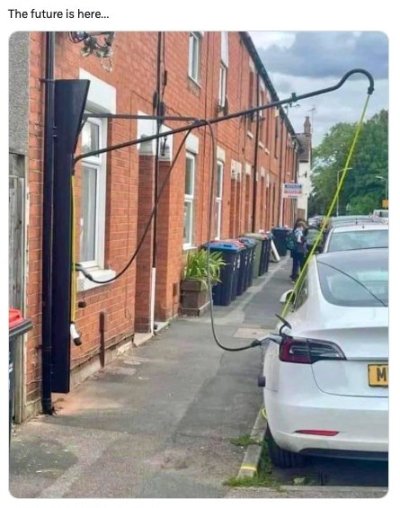Hi,
Having worked in the automotive industry for nearly 20 years - for 2 different tier-1 suppliers (of multiplexed electrical systems, onboard electronics, diagnostic tools - including for Mercedes and fuel injection systems) - I will let you into a little secret!
Legacy auto makers like Mercedes, BMW, VW, Ford, GM, Peugeot etc. don’t really make much these days - they sub everything out to tier-1 & tier-2 suppliers.
I used to laugh when I saw that a car manufacturer launched a new model and announced that it had the latest cruise control or clever braking system - knowing that this had been designed and sold to them by the likes of Bosch, Siemens etc.
Mercedes, for instance, would then get a few years exclusivity from Bosch on a new system - until Bosch could then sell it to other auto makers.
The boss of Ford - Jim Farley, hit the nail on the head in a recent interview when he said that Ford does not own the rights to the embedded software in the sub-systems on their vehicles and that Ford need to pay their suppliers to change software (before it can then be released to either the dealers for a recall or for an over-the-air update on their latest sim equipped vehicles).
This is so ironic - as Ford introduced the Model T as a fully vertically integrated car - they literally made everything for that car in their factory.
Fast forward to today and Ford make very little content on their vehicles - including the increasingly important software.
The most vertically integrated car manufacturer today is Tesla - this is shown by their total control of the systems on their vehicles, frequent software updates and record margins on their cars sold.
Jim Farley stated that Ford are going back to their roots and will bring things back in-house - but this takes time & investment.
Just look at the amount of different vehicle manufacturers & models that are affected by the Takata airbag recall.
VW don’t write the software in-house for their EV dash & infotainment systems and it is apparently very buggy and not that good to use.
Legacy auto makers have effectively become lazy over the years and have relied too heavily on outside suppliers for crucial systems on their vehicles.
As vehicles become more software driven with less switches and more big screens - they are suddenly finding themselves in a very tricky position.
Some will adapt but some are likely to fall away!
Cheers
Steve
Having worked in the automotive industry for nearly 20 years - for 2 different tier-1 suppliers (of multiplexed electrical systems, onboard electronics, diagnostic tools - including for Mercedes and fuel injection systems) - I will let you into a little secret!
Legacy auto makers like Mercedes, BMW, VW, Ford, GM, Peugeot etc. don’t really make much these days - they sub everything out to tier-1 & tier-2 suppliers.
I used to laugh when I saw that a car manufacturer launched a new model and announced that it had the latest cruise control or clever braking system - knowing that this had been designed and sold to them by the likes of Bosch, Siemens etc.
Mercedes, for instance, would then get a few years exclusivity from Bosch on a new system - until Bosch could then sell it to other auto makers.
The boss of Ford - Jim Farley, hit the nail on the head in a recent interview when he said that Ford does not own the rights to the embedded software in the sub-systems on their vehicles and that Ford need to pay their suppliers to change software (before it can then be released to either the dealers for a recall or for an over-the-air update on their latest sim equipped vehicles).
This is so ironic - as Ford introduced the Model T as a fully vertically integrated car - they literally made everything for that car in their factory.
Fast forward to today and Ford make very little content on their vehicles - including the increasingly important software.
The most vertically integrated car manufacturer today is Tesla - this is shown by their total control of the systems on their vehicles, frequent software updates and record margins on their cars sold.
Jim Farley stated that Ford are going back to their roots and will bring things back in-house - but this takes time & investment.
Just look at the amount of different vehicle manufacturers & models that are affected by the Takata airbag recall.
VW don’t write the software in-house for their EV dash & infotainment systems and it is apparently very buggy and not that good to use.
Legacy auto makers have effectively become lazy over the years and have relied too heavily on outside suppliers for crucial systems on their vehicles.
As vehicles become more software driven with less switches and more big screens - they are suddenly finding themselves in a very tricky position.
Some will adapt but some are likely to fall away!
Cheers
Steve




